When leaving the screening last night, I told the P.R. agency rep that I liked that he [Todd Phillips] made a film that no one was going to like. Joker: Folie à Deux was a film that, when it ended, I heard audible groans from the fan screening audience I saw it with. It was something unexpected by everyone, just how different in feeling and tone this was from the first, and I suspect just how different the world is from 2019 when the first film was released and grossed over a billion dollars.
Joaquin Phoenix returns as Arthur Fleck, the Joker in this world two years after the first film’s events. He’s spent those two years in Arkham State Hospital awaiting the start of his murder trial for those he killed in the first film. During his stay, he meets Lee, played by Lady Gaga, in music class for inmates because he’s shown good behavior. Their infatuation with each other, along with the court trial, pushed Fleck back into his fantasy-driven mental state that caused him to be the “Joker” in the first place. The film deals with the fallout of this figure, which has a very public effect on the city’s populace, or that’s what the film hopes to convey.
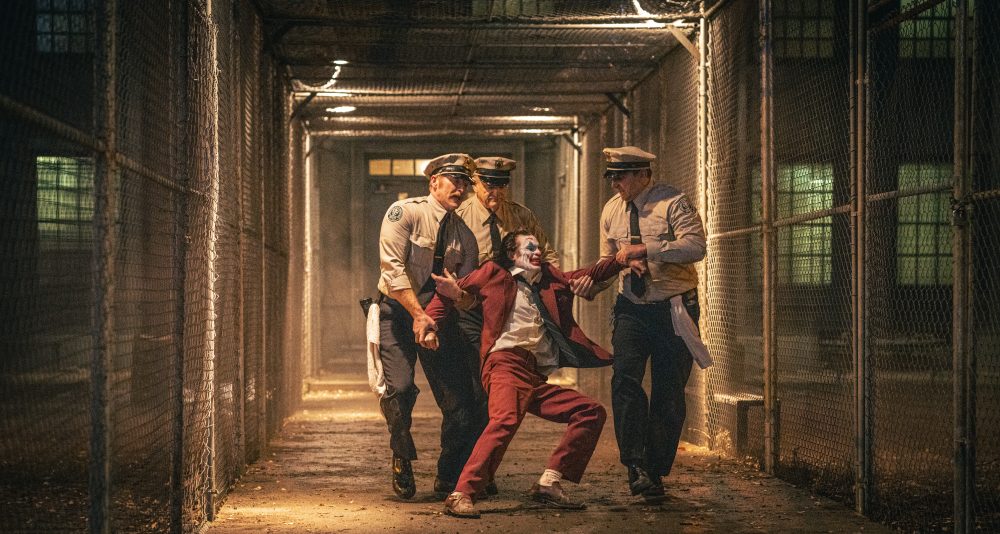 © 2024 Warner Bros. Ent. All Rights Reserved. TM & © DC
© 2024 Warner Bros. Ent. All Rights Reserved. TM & © DCThe problem is that the film ends up being a very tedious and, at times, very boring courtroom drama, taking too much rehashing what happened in the last film and through different characters litigating the real-world conversation around the first film’s merits and themes. This film is over two hours and eighteen minutes long and feels as long as every single minute I was there. I think Phillips and Todd Silver, the screenwriters, fell into a narrative trap trying to correlate the many real-world criticisms of the first film into the world of the film through characters like Harvey Dent (Harry Lawtey) instead of to me doubling down on the way this Joker is actually different than the no named iconic foe of Batman. There are elements here that work, like the officers’ poor treatment of the inmates, the media’s need for spectacle, and, of course, what was used in the last one, the divide between classes in Gotham that led to that big riot at that film’s finale.
Phoenix is still captivating on screen as Fleck as he again shed many pounds to look like this emaciated cartoon-like man at the whims of his sanity and the need for love and acknowledgment of other people. He has an excellent command of his face to show the processing emotion that is going on within Fleck. Most of the film is about the character dealing with just how culpable he is in what happened as his lawyer Maryanne (Catherine Keener) is trying to save his life through an insanity plea, which Fleck and Joker are two different personas. Besides her being his defender, there’s little to explain why she believes this. This is the opposite of Dent, the young Assistant D.A. who is going for the death penalty, and you never get why the character doesn’t do much to make you think he cares enough to pursue this verdict. This isn’t a Dent film, but focusing more on his driving reasons why he thinks Fleck should die would’ve been nice.
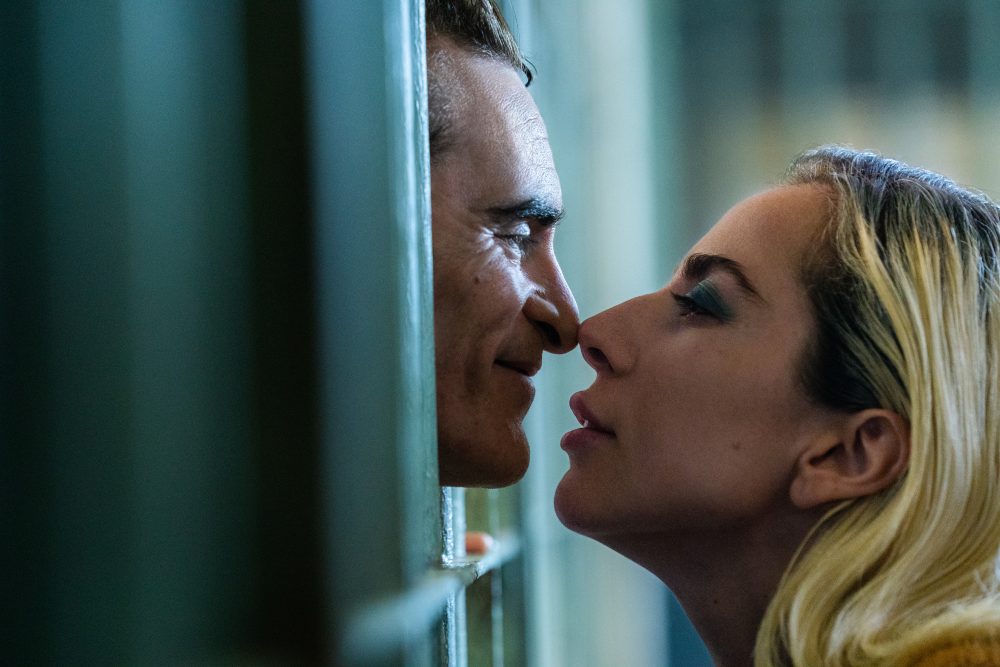 © 2024 Warner Bros. Ent. All Rights Reserved. TM & © DC
© 2024 Warner Bros. Ent. All Rights Reserved. TM & © DCThe film, just like the first, looks amazing thanks to Phillips’s constant collaborator, Lawrence Sher. The way they choose shots and work with their lighting team to bombard you with wonderful-looking images as you’re getting more and more bored by the story makes the film very watchable to the point I’ll still buy this film on 4K just because I like how it looks. They use color very well to tell the story and where we, the audience, are viewing the real world or the daydreams of Fleck. The costumes also capture that feeling of the very early Eighties, as it still looked like the Seventies, which continues the immersion into this version of Gotham but skews away from Scorsese into trying to be a bit of its own things this time.
I guess it’s time to talk about the Musical nature of the film and how it works and it doesn’t. Some people hate Musicals because the nature of bursting out in song breaks the reality of the world for them. It no longer feels real. This film chooses to do a few things: have characters naturally humming or singing songs playing in the world, have whole musical sequences in Fleck’s mind as he’s processing what’s happening and going on around, and have characters burst out in song and people looking and treating them as they have a mental illness and with disdain. The songs, mostly old pop hits, fit what’s going on in the story; the original songs don’t hit as they should for me, but I wasn’t bothered by any of them. Phoenix does okay singing by himself and at times with Gaga, but he is by no means Bradley Cooper making banger duets with her, like in A Star is Born. Gaga is, of course, incredible at singing, but her character is not a well-thought-out enough version of the very well-known Harley Quinn. They go a different direction with her than other recent takes, and it’s interesting, but there wasn’t enough for Gaga to do. It feels that, in many ways, she was there to make sure the music parts were exceptional.
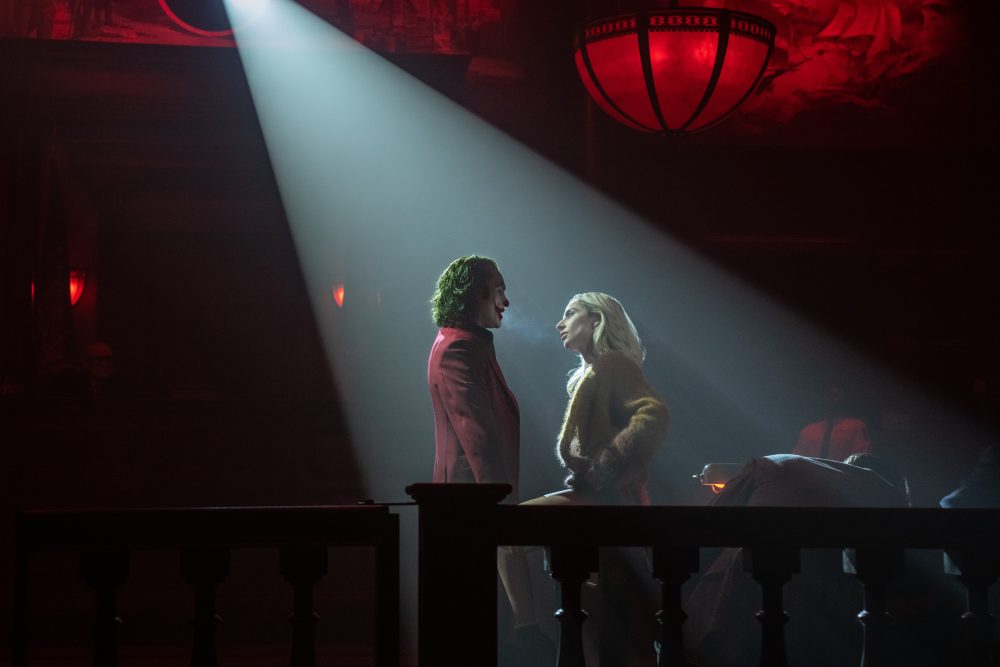 © 2024 Warner Bros. Ent. All Rights Reserved. TM & © DC
© 2024 Warner Bros. Ent. All Rights Reserved. TM & © DCNow, earlier, I said I found it interesting, and I could find stuff I liked in the story on a meta-level of thinking about the many interpretations of these D.C. characters as they get reinvented so many times. I liked how different Fleck was from the Joker we usually see while also taking influence from The Killing Joke and The Three Jokers to even The Man Who Laughs film that inspired the character to begin with. For me, with the first film, it all worked within the character’s overall pop culture canon. I honestly just don’t want to get bored with the same takes. Many others I know personally, especially comic readers and pros, weren’t as open to it. While others loved it, all you can do is shrug at that point. There’s a lot to be said about the overreaction to the first film, such as that it would end Western society just because a filmmaker used the Joker to make an homage to Martin Scorsese films of the Eighties. But this ain’t it, people.
The film tries to be everything to everyone and ends up being for no one. With that being said, this story is over, and the two films work as telling a complete story for this Arthur Fleck character and might be worth watching more at home than rushing out to the theater, which will end up feeling like a waste of time and money to most folks.


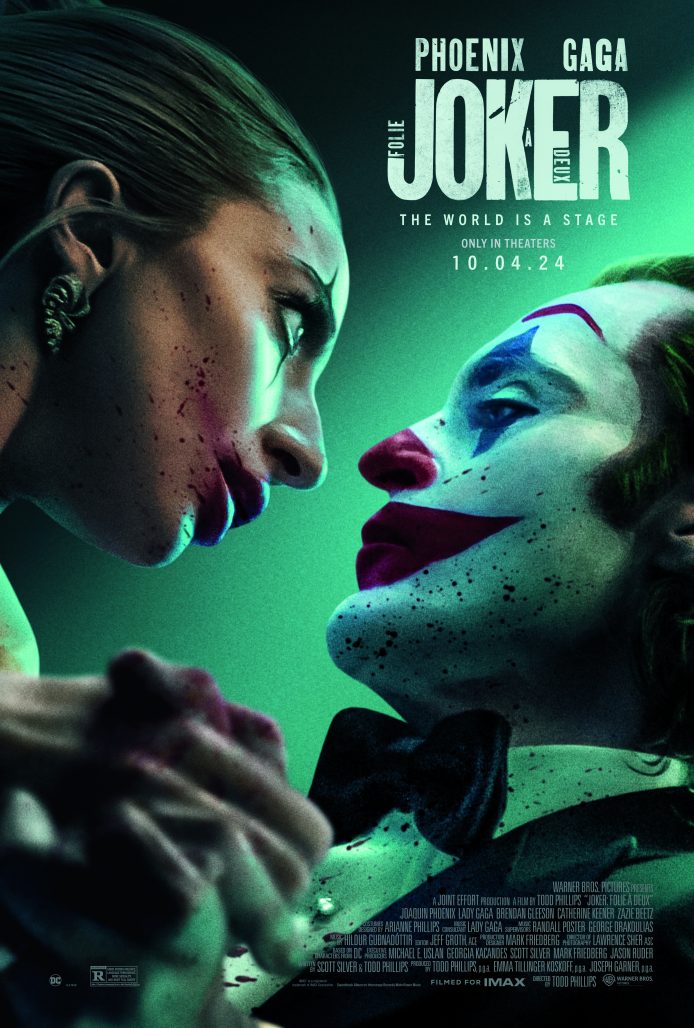


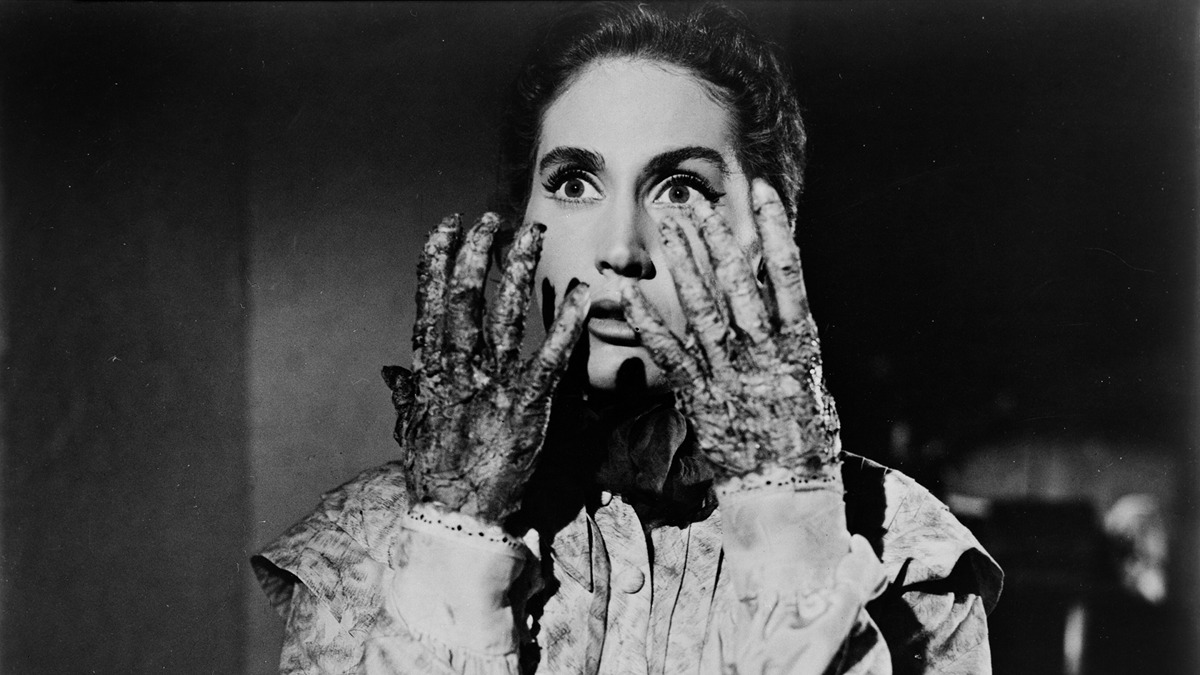
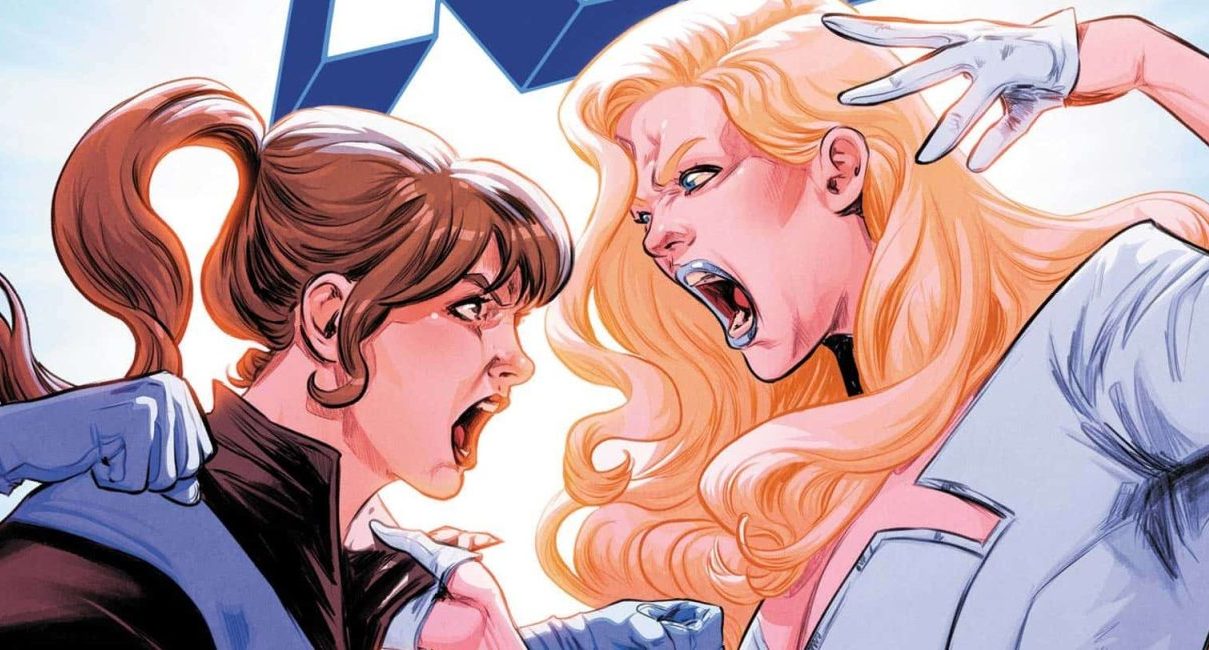
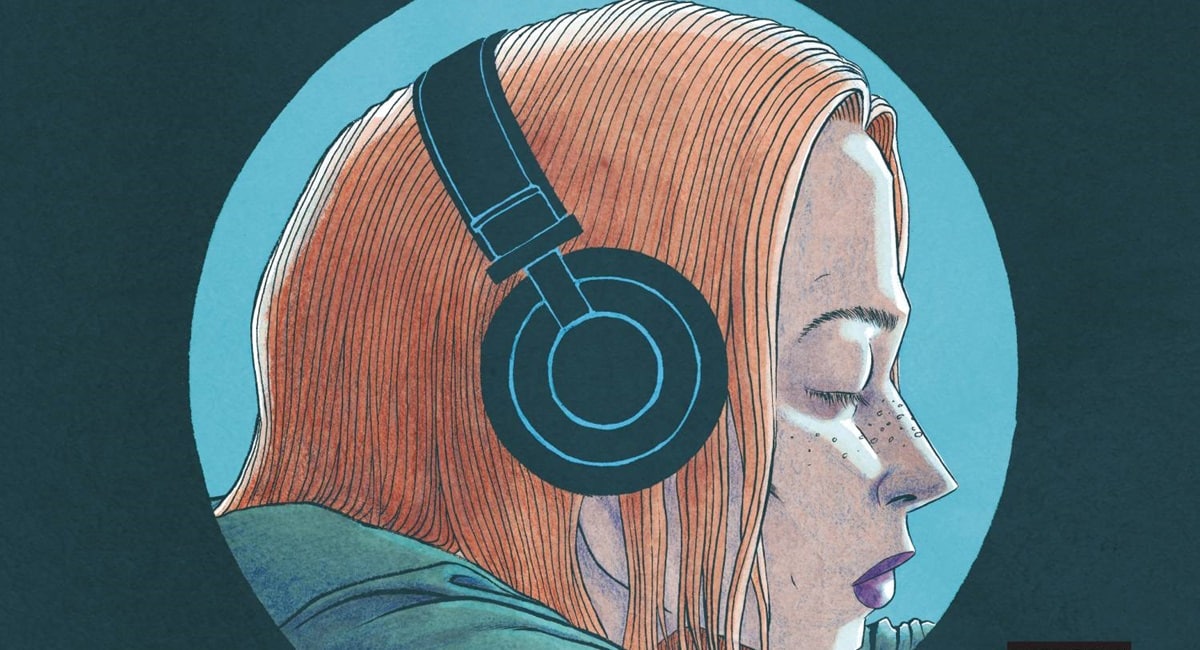
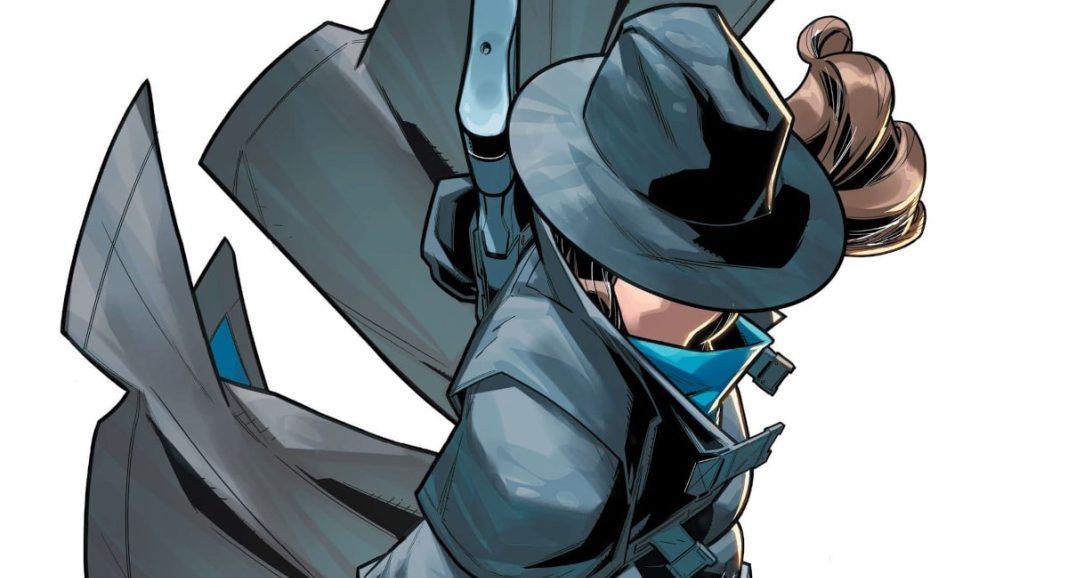
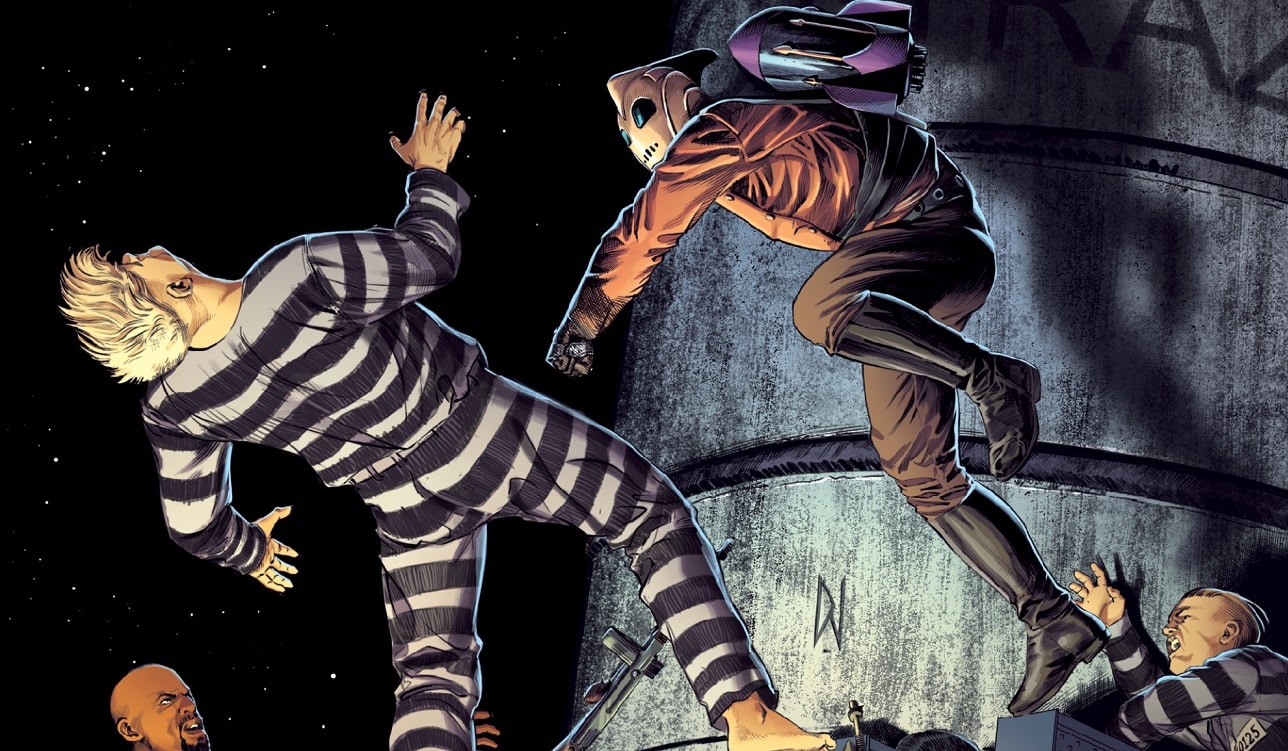












 English (US) ·
English (US) ·